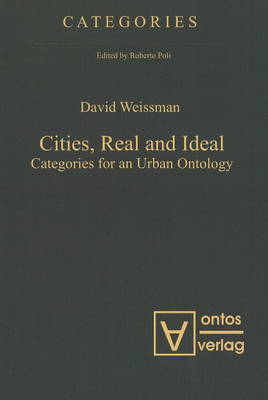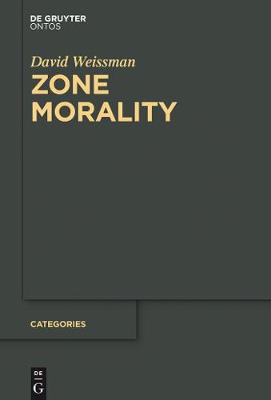Categories
2 primary works • 3 total works
Book 2
Cities are conspicuous among settlements because of their bulk and pace: Venice, Paris, or New York. Each is distinctive, but all share a social structure that mixes systems (families, businesses, and schools), their members, and a public regulator. Cities alter this structure in ways specific to themselves: orchestras play music too elaborate for a quartet; city densities promote collaborations unachievable in simpler towns. Cities, Real and Ideal avers with von Bertalanffy, Parsons, Simmel, and Wirth that a theory of social structure is empirically testable and confirmed. It proposes a version of social justice appropriate to this structure, thereby updating Marx's claim that justice is realizable without the intervention of factors additional to society's material conditions.
Book 5
Traditional moral theory usually has either of two emphases: virtuous moral character or principles for distributing duties and goods. Zone Morality introduces a third focus: families and businesses are systems created by the causal reciprocities of their members. These relations embody the duties and permissions of a system's moral code. Core systems satisfy basic interests and needs; we move easily among them hardly noticing that moral demands vary from system to system. Moral conflicts arise because of discord within or among systems but also because morality has three competing sites: self-assertive, self-regarding people; the moral codes of systems; and regulative principles that enhance social cohesion. Each wants authority to control the other two. Their struggles make governance fragile. A strong church or authoritarian government reduces conflict by imposing its rules, but democracy resists that solution. Procedural democracy is a default position. Its laws and equitable procedures defend people or systems having diverse interests when society fails to create a public that would govern for the common interest.
Meaning (significance) and nature are this book's principal topics. They seem an odd couple, like raisins and numbers, though they elide when meanings of a global sort-ideologies and religions, for example-promote ontologies that subordinate nature. Setting one against the other makes reality contentious. It signifies workmates and a coal face to miners, gluons to physicists, prayer and redemption to priests. Are there many realities, or many perspectives on one? The answer I prefer is the comprehensive naturalism anticipated by Aristotle and Spinoza: "natura naturans, natura naturata." Nature naturing is an array of mutually conditioning material processes in spacetime. Each structure or event-storm clouds forming, nature natured-is self-differentiating, self-stabilizing, and sometimes self-disassembling; each alters or transforms a pre-existing state of affairs. This surmise anticipated discoveries and analyses to which neither thinker had access, though physics and biology confirm their hypothesis beyond reasonable doubt.
Hence the question this book considers: Is reality divided:nature vrs. lived experience? Or is experience, with all its meanings and values, the complex expression of natural processes?
Hence the question this book considers: Is reality divided:nature vrs. lived experience? Or is experience, with all its meanings and values, the complex expression of natural processes?


